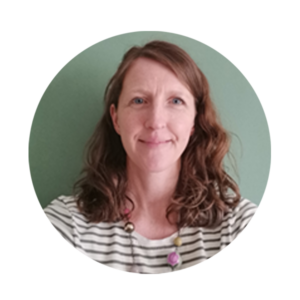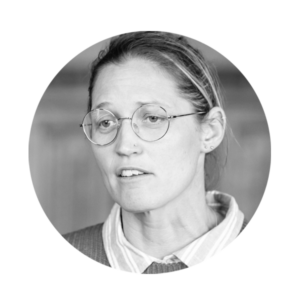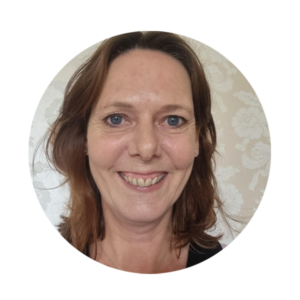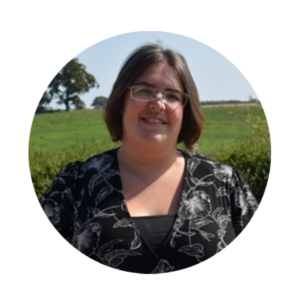We are thrilled to showcase an exceptional lineup of speakers who will be presenting on various crucial aspects of the selected topic. Delegates can expect to gain an understanding of the diverse types of traumas and their profound impact on the mental well-being of children and young people. The conference will dive deep into the challenges of effectively working with traumatised young people and their families, while also addressing the pivotal role of systems in mitigating secondary trauma.
Delegates will not only have the chance to network with a wide array of professionals dedicated to the welfare of children and young people but will also engage in an enriching in-person event. Our esteemed speakers will provide invaluable perspectives on the topic of trauma and its treatment in young people. The event will culminate in a dynamic panel discussion aimed at addressing any lingering questions.
Bookings CLOSED
Sign up at this link or on the Book Now button at the top of the screen, and complete the form that follows. You’ll then receive an email confirmation and a link to the webinar, plus we’ll send you a calendar reminder nearer the time. All delegates will have exclusive access to a recording available for 90 days after the event, together with slides.
- ACAMH Members MUST login to book onto the webinar in order to get a CPD certificate
- Non-members this is a great time to join ACAMH, take a look at what we have to offer, and make the saving on these sessions
ACAMH Members £149
Non Members £199 Join now and save
Don’t forget as a charity any surplus made is reinvested back as we work to our vision of ‘Sharing best evidence, improving practice’, and our mission to ‘Improve the mental health and wellbeing of young people aged 0-25’.
Location
This is a face-to-face event at Chilworth Manor Hotel, Chilworth, Southampton, SO16 7PT.
Chilworth Manor Hotel is a matter of minutes from M3 Junction 14 and M27 Junction and 4 set in 12 acres of landscaped grounds and with over 220 complimentary car parking spaces. It is just 5 miles from the Southampton Docks Cruise Terminal, Southampton International Airport and Parkway train station.
What3words ///bookcases.comedy.smug
About the event
This event aims to provide a brief overview of childhood trauma and its lasting effects on mental health and the use of different principles in supporting the needs of traumatised children. The session will delve into the different types of traumas and the short-term and long-term consequences of trauma on a child’s emotional, behavioural, and social well-being. We will briefly discuss how professionals and systems can inadvertently retraumatise vulnerable children and families through unconscious bias and its impact on interventions, and hence the need for using a trauma-informed approach. The event will introduce the principles of Good Lives Model in understanding and supporting traumatised children alongside showcasing trauma-focused work in children with neurodevelopmental conditions. It will also introduce the concept of sensory integration and its role in treating traumatised children.
About the talks
Dr. Asha Gowda and Dr. Katie Birts – Understanding the scope of impact of trauma – crucial for effective treatment and support of traumatised CYP and families
Trauma varies from isolated events to continuous abuse, affecting individuals in diverse ways. Understanding the effects of family-based traumas on child development is crucial, as is acknowledging the impact of secondary trauma when families are victimised by the systems designed to assist them. This talk will emphasise the wide array of challenges faced by traumatised children and young people (CYP) and their families, and will briefly examine the various therapies and strategies needed to support them.
Key learning takeaways
- Understanding the various types of trauma and their effects on the mental health of young individuals.
- Investigating the evidence-based treatments for trauma-related disorders.
- Acknowledging the role of systems/institutions in contributing to secondary trauma and identifying methods to mitigate it.
Dr. Alison Wallis – Use of principles from Good Lives Model to support working with children and young people who have experienced trauma
The Good Lived Model was developed by Professor Tony Ward in the early 2000’s and was developed for work with offenders. It is a strength based, needs led model of rehabilitation that helps offenders develop a lifestyle that is incompatible with their offending. The central idea of the Good Lives Model is that each of us has needs (Goods) and that there are roughly 10 central needs that we will share. Each need is more or less important to us and this importance is likely to have been shaped by personality and experiences. Over time we then develop plans or strategies to get those needs met. When working with children and young people who have experienced trauma, the strategies may be highly effective whilst also being detrimental. Understanding the need and developing alternative ways to meet that need can support “a Good Life”.
Key learning takeaways
- To have a working model of the framework of Good Lives.
- To understand how the Good Lives Model could be applied to Children and young people.
- To understand how the Good Lives principles can support multi-agency planning for children who have experienced Trauma.
Alexis Quinn – Delivering experience sensitive interventions to young people with neurodevelopmental conditions
Alexis will journey through the cultural lives of autistic people from both a lived experience and academic perspective. The accrual of interpersonal, environmental and neuronormative trauma and its impact will be explored in the context of service provision and autistic well-being. Reference will be made to cultural, psychological and blanket restrictions. Experience sensitive interventions and their empathic application will be discussed.
Key learning takeaways
- To understand our neuronormative context and its impact
- To understand what constitutes an experience sensitive approach and why it is needed
- To recognise the need for neuro-affirming and adapted clinical interventions
Clare Willis – The use of Sensory Integration interventions for traumatised Children and Young Person
This presentation will provide an introduction to the key principles of Ayres Sensory Integration theory and intervention. The presentation will examine its relevance to children and adolescents who have experienced developmental trauma and will talk through the differences in sensory processing that can occur within this client group. We will examine the importance of understanding a young person’s sensory processing pattern through comprehensive assessment, which can contribute to multi-disciplinary formulations and help when planning appropriate interventions. We will outline Sensory Integration and associated interventions that can support children and young people with trauma related difficulties across the age range, and explore how Sensory Integration and OT interventions are adapted or modified to meet the needs of these young people. These interventions are designed to support young people in: developing more healthy relationships, improving their emotional regulation skills, positively impacting their mental health, filling developmental gaps and improving their participation in leisure, self-care and productive occupations.
Key learning takeaways
- To introduce Ayres Sensory Integration theory and intervention.
- To understand the common differences in sensory processing which are experienced by young people who have experienced trauma.
- To outline the use of Sensory Integration and associated interventions for children and young people with trauma.
Programme
9:00 – 9:30 Registration
9:30 – 9:40 Introduction by Chair
9:40 – 11:00 – Dr. Asha Gowda and Dr. Katie Birts – Understanding the scope of impact of trauma – crucial for effective treatment and support of traumatised CYP and families
11:00- 11:10 – Break
11:10 – 12:10 – Dr. Alison Wallis – Use of principles from Good Lives Model to support working with children and young people who have experienced trauma
12:10- 13:00 – Lunch
13:00 – 14:00 – Alexis Quinn – Delivering experience sensitive interventions to young people with neurodevelopmental conditions
14:00 – 15:00 – Ms Clare Willis – The use of Sensory Integration interventions for traumatised Children and Young Person
15:00 – 15:30 – Discussion panel, closing comments and end
About the speakers

Since 2017, Dr. Asha Gowda has served as a Child and Adolescent Consultant Psychiatrist at Portsmouth CAMHS and is the Lead Psychiatrist for Solent CAMHS. Previously, she was a Consultant Psychiatrist at Havant CAMHS. Asha earned her undergraduate medical degree in India before joining the NHS in 2004. Her core Psychiatry training was completed in West London with the Charing Cross Rotation, followed by higher specialist training in Child & Adolescent Psychiatry within the Wessex Deanery. With over fifteen years in CAMHS, Asha is dedicated to supporting children with complex mental health needs and neurodevelopmental conditions. Her significant contributions to the field were recognised in 2019 when she received the Fellowship of the Royal College of Psychiatrists. Asha is also invested in education, playing a pivotal role in the training of various CAMH professionals. She has been the Chair of the ACAMH Southern Branch since 2017, leading numerous regional educational events.

Dr. Katie Birts is currently acting up as Consultant Clinical Psychologist for Solent CAMHS, working across both Southampton and Portsmouth. Katie has worked in CAMHS since qualifying as a Clinical Psychologist in 2009 and has specialised in trauma and attachment throughout her career, including completing further training and supervision in Dyadic Developmental Psychotherapy (DDP), Video Interaction Guidance (VIG) and Trauma-Focused Cognitive Behavioural Therapy (TF-CBT). Katie is passionate about meeting the complex needs of children and young people who have experienced trauma, including developmental trauma.

Alexis Quinn, Content developer, Anna Freud, Manager – Restraint Reduction Network. Alexis is a former schoolteacher, professional athlete and author of two books: her ground-breaking memoir, Unbroken, and Autistic & Expecting, a guide for autistic parents to be. Alexis speaks on neurodivergence, trauma, restraint, solitary confinement and mental well-being. She is a psychotherapist, content developer for Anna Freud and works as Manager of the Restraint Reduction Network.

Dr. Alison Wallis has worked with children and young people within a mental health setting for over 20 years. She has experience of working in teams that support children in the care system, those on the edge of care and those known to the criminal justice system. She currently works in a forensic CAMHS service offering consultation, supervision and direct work with children, young people, their carers, parents and networks. Alison has also worked as a Clinical Director for Children and Young People’s Services. She has used evidence based models to design, develop and implement and progress services. Alison is a keen advocate for using the experiences of families and professionals to support quality and effectiveness of care.

Clare Willis is a Specialist Occupational Therapist with over 15 years’ experience in child and adolescent and adult mental health services. Clare has completed post-graduate training in Ayres Sensory Integration therapy, completed training in Dyadic Developmental Psychotherapy and specialises in working with children and young people with neurodiversity, associated mental health conditions and, those who experience developmental trauma and attachment challenges. Alison has also worked as a Clinical Director for Children and Young People’s Services. She has used evidence based models to design, develop and implement and progress services. Alison is a keen advocate for using the experiences of families and professionals to support quality and effectiveness of care.
Bookings CLOSED
Sign up at this link or on the Book Now button at the top of the screen, and complete the form that follows. You’ll then receive an email confirmation and a link to the webinar, plus we’ll send you a calendar reminder nearer the time. All delegates will have exclusive access to a recording available for 90 days after the event, together with slides.
- ACAMH Members MUST login to book onto the webinar in order to get a CPD certificate
- Non-members this is a great time to join ACAMH, take a look at what we have to offer, and make the saving on these sessions
ACAMH Members £149
Non Members £199 Join now and save
Don’t forget as a charity any surplus made is reinvested back as we work to our vision of ‘Sharing best evidence, improving practice’, and our mission to ‘Improve the mental health and wellbeing of young people aged 0-25’.

